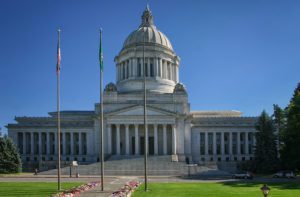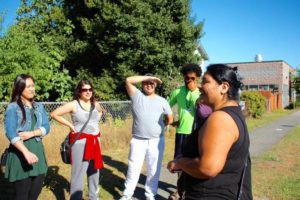By the LEV Policy Team
 Part of defining basic education is determining what each and every student should have access to in their school. Currently, our system does not guarantee access to student supports that are critical to many students’ academic success—including support staff like counselors or nurses, and programming like additional tutoring. There are a number of approaches we can take to making sure that students receive the supports and resources they need.
Part of defining basic education is determining what each and every student should have access to in their school. Currently, our system does not guarantee access to student supports that are critical to many students’ academic success—including support staff like counselors or nurses, and programming like additional tutoring. There are a number of approaches we can take to making sure that students receive the supports and resources they need.
The Learning Assistance Program
Currently, Washington provides additional supports to students that are struggling academically through the Learning Assistance Program (LAP). Districts receive funding for this program from the state based on their enrollment of low-income students. Districts must spend LAP funds on services from a list of state-approved, evidence-based practices, including one-on-one or group tutoring and extended learning time, as well as limited use of funds for staff professional development and parent engagement. Beginning in the 2015-16 school year, districts must prioritize spending on K-4 literacy interventions. This focus on elementary literacy combined with limited LAP funding has resulted in some districts being unable to provide services to students in middle and high school grades.
The current funding formula for LAP does not align additional student supports and actual student need. While funding is provided to districts based on low-income enrollment, services are provided to students based on academic need, as identified by the district, regardless of income. This results in two potential misalignments. First, all academically struggling students may not be funded if there are more students in the district that need support than there are low-income students. Second, the full range of academic and non-academic needs of low-income students may not be met if they are not eligible for LAP services.
The funding formula also takes into consideration the salaries of certificated teachers in the district, even though many program services are provided by paraeducators. This creates inequities between districts because funding is different based on the characteristics of the adults in the district, not the students, even if student need is the same between districts.
LAP can be used as a mechanism to target the McCleary investments towards student supports with some changes to increase effectiveness. These changes may include:
- Changing the funding formula to be based on student need, not adult characteristics;
- Changing the formula to align with student eligibility for services;
- Altering and/or expanding the allowable uses for LAP funds and increasing funding levels to ensure the needs of all eligible students are met; and
- Monitoring the effectiveness of LAP interventions to ensure the program is improving student outcomes and closing gaps.
While considering changes to LAP, we should also be examining the needs of low-income students that are non-academic and, therefore, not addressed by the Learning Assistance Program.
Access to Support Staff
Washington provides districts with minimal funding within the current funding formula for support staff, such as counselors, social workers, nurses, and family engagement coordinators. Many of the allocations for these positions are fractions of full-time employees, meaning the amount of money districts receive is inadequate to hire these staff for more than a couple of hours a week. Our current funding structure also does not require districts to spend money allocated for specific staff positions to hire those staff. This allows districts flexibility in staffing to meet the needs of their communities, but, particularly in our environment of inadequate funding, also means that students may not have access to these staff because districts are unable or choose not to hire them. Possible ways to ensure that every student has access to the services provided by support staff could include increasing funding for support staff; requiring minimum staffing levels for support staff, potentially triggered by high-need student enrollment levels; and facilitating and encouraging partnerships between community-based service providers and districts and schools.
Special Education and Transitional Bilingual Instructional Program
Washington provides districts with additional funding for students qualifying for special education services and for English Language Learners (ELL). These funds must be spent on qualifying students, however, the funds provided by the state may not be adequate to meet the needs of all students. Particularly with special education students, the state limits the amount of special education funding to 12.7% of district enrollment. As a result, districts with larger special education student populations than the state cap may not receive the necessary funding to serve all of their students.
While special education students and ELLs receive specialized services, they also interact regularly with all school staff. However, often only the specialized staff are trained in best practices for working with these student populations. This means that outside of the specialized programing students receive, they may not be adequately supported in the school setting as a whole. Students receiving special education or English language services also may have non-academic or additional academic needs outside of those programs, and require access to other school support staff and services.
As we explore ways to better support every student in Washington schools, this could include examining the adequacy of funding for special education and the Transitional Bilingual Instruction Program (ELL students), funding professional development for all school staff in working with special education and ELL students, and encouraging schools and districts to integrate the services and supports students need outside of the specialized programming, rather than providing services in a silo.
Integrated Student Supports and Non-Academic Considerations
Students’ academic success is determined by a number of factors, including social emotional skills, physical and mental health, academic self-concept, family situation, and expectations of school staff. It is important that students have access to both the academic and non-academic supports they need in order to be successful. Washington has been taking steps to improve access to non-academic supports in recent years, including the development of social emotional learning (SEL) standards and the passage of HB 1541, which creates the integrated student supports protocol. The Washington Integrated Student Supports Protocol (WISSP) will be a tool districts can use to assess student need, strategically partner with families and community based organizations, and leverage district and community resources. These are important steps in our state’s efforts to address all of the factors that impact student achievement, but more can and should be done as we invest in 2017. This could include funding professional development for school staff in cultural competency, trauma-informed practices, and social emotional learning; funding family engagement coordinators for schools; and investing in continued implementation of the WISSP and SEL benchmarks and standards.
Investing in student supports, both academic and non-academic, and providing student access to services through staff, state investment, and partnerships can ensure that our McCleary investments will improve student outcomes.
#Beyond Basic
Read Part 1 of our McCleary blog series, Rethinking Our Education System
 The
The 
 House Democrats and the Senate Majority Coalition Caucus (MCC) have released bills to address the
House Democrats and the Senate Majority Coalition Caucus (MCC) have released bills to address the 











 Donations are made to the League of Education Voters (LEV) and the League of Education Voters Foundation by individuals, groups, and businesses throughout the community. These generous donations from you who believe in high-quality public education allow us to ensure measurable progress toward LEV’s vision that every student in Washington state receives an excellent public education from cradle to career.
Donations are made to the League of Education Voters (LEV) and the League of Education Voters Foundation by individuals, groups, and businesses throughout the community. These generous donations from you who believe in high-quality public education allow us to ensure measurable progress toward LEV’s vision that every student in Washington state receives an excellent public education from cradle to career. Part of defining basic education is determining what each and every student should have access to in their school. Currently, our system does not guarantee access to student supports that are critical to many students’ academic success—including support staff like counselors or nurses, and programming like additional tutoring. There are a number of approaches we can take to making sure that students receive the supports and resources they need.
Part of defining basic education is determining what each and every student should have access to in their school. Currently, our system does not guarantee access to student supports that are critical to many students’ academic success—including support staff like counselors or nurses, and programming like additional tutoring. There are a number of approaches we can take to making sure that students receive the supports and resources they need.